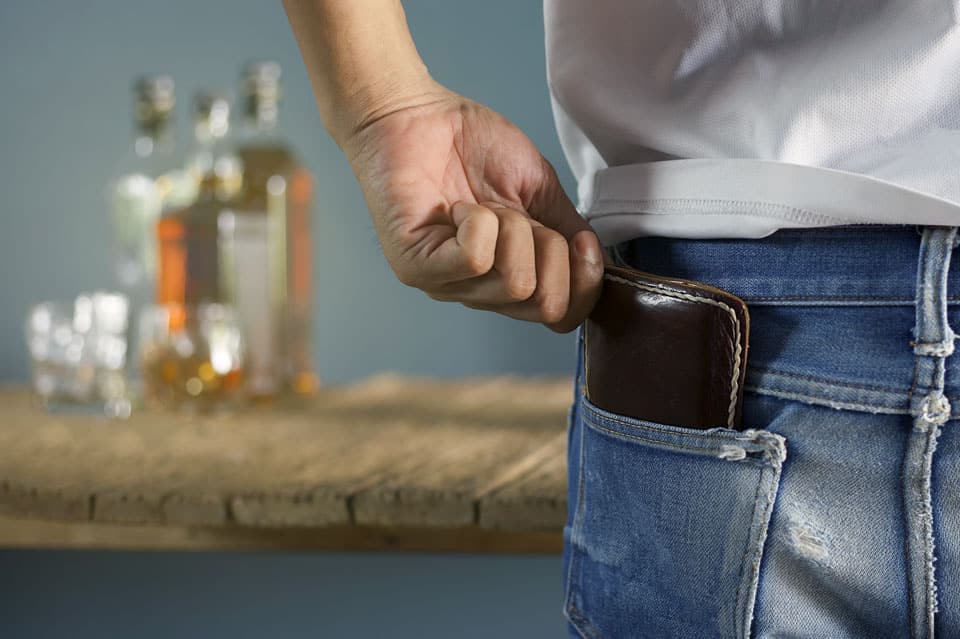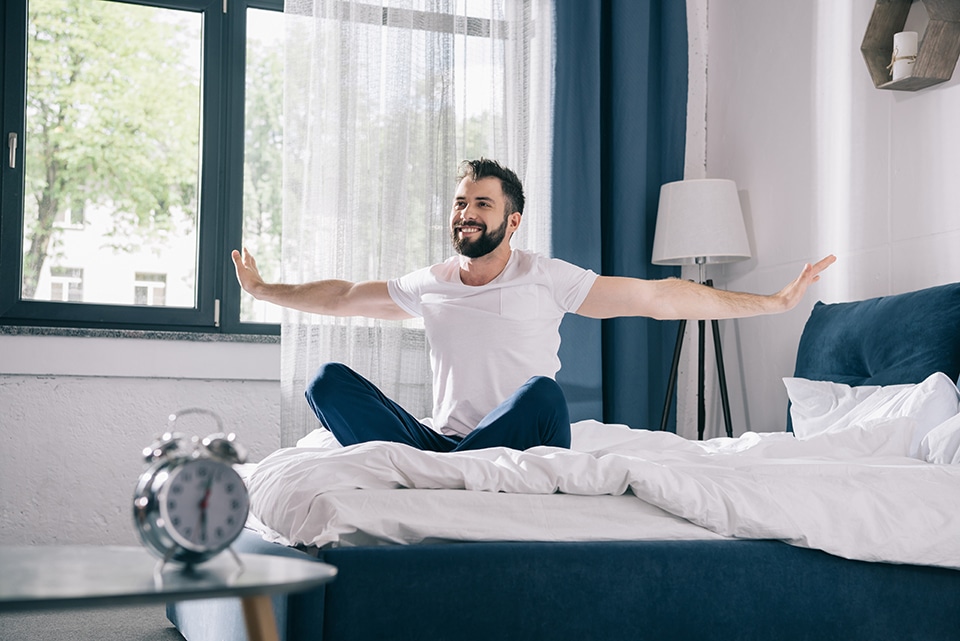Here at Hello Sunday Morning we know what a huge question ‘should I give up alcohol’? can be to even put out to the universe. It’s not easy to give up something that’s incorporated into your daily dinner, salubrious socialising, or relaxation routine. We know how hard it is for our community and our Daybreak members to give up alcohol, but we also know the huge benefits that come from a life with less or no booze; weight loss, mental clarity, no hangovers, peace of mind and much more time to focus on your goals, just to mention a few. And guess what?! Our Daybreak community is so supportive, encouraging and resourceful they are constantly offering suggestions on getting over the first few hurdles in giving up alcohol and in staying sober.
Whether you’re a bookworm, audiophile, couch potato or app aficionado, below is a comprehensive list of resources on getting sober for everyone seeking help in giving up alcohol.
Books about giving up alcohol recommended by our community
- Alcohol Explained by William Porter
This book explains how alcohol affects human beings on a chemical, physiological and psychological level, from those first drinks right up to chronic alcoholism. The book provides a logical, easy to follow explanation of the phenomenon and detailed instructions on how to beat it.
- The Naked Mind by Annie Grace
Annie Grace presents the psychological and neurological components of alcohol use based on the latest science, and reveals the cultural, social, and industry factors that support alcohol dependence in all of us. Packed with surprising insight into the reasons we drink, this book will open your eyes to the startling role of alcohol in our culture, and how the stigma of alcoholism and recovery keeps people from getting the help they need.
- Blackout: Remembering the Things I Drank to Forget by Sarah Hepola
Sarah often blacked out after a night drinking, waking up with a blank space where four hours should have been. Mornings became detective work on her own life. What did I say last night? How did I meet that guy? She apologised for things she couldn’t remember doing, as though she were cleaning up after an evil twin. Her tale will resonate with anyone who has been forced to reinvent or struggled in the face of necessary change. It’s about giving up the thing you cherish most – but getting yourself back in return.
- The Sober Diaries by Clare Pooley
Like many women, Clare Pooley found the juggle of a stressful career and family life a struggle, so she left her successful role as a managing partner in one of the world’s biggest advertising agencies to look after her family. She knew the change wouldn’t be easy, but she never expected to find herself an overweight, depressed, middle-aged mother of three who was drinking more than a bottle of wine a day and spending her evenings Googling ‘am I an alcoholic?’
- Drinking: A Love Story by Caroline Knapp
Caroline Knapp was a successful woman with her own apartment, a steady boyfriend and a career in newspaper journalism. Beneath her polished veneer was a person so broken and insecure she drank herself into a stupor every night. This is her account of her twenty-year love affair with alcohol.
- Alcohol Lied to Me (the Intelligent Escape from Alcohol Addiction) by Craig Beck
Craig Beck was a successful and functioning professional man in spite of a ‘two bottles of wine a night’ drinking habit. For 20 years, he struggled with problem drinking, all the time refusing to label himself an alcoholic because he did not think he met the stereotypical image that the word portrayed. All these ‘willpower’ based attempts to stop drinking, failed. Slowly he discovered the truth about alcohol dependence and, one by one, all the lies he had previously believed started to fall apart.
- A Girl Walks Out of A Bar by Lisa Smith
Lisa Smith was a bright young lawyer at a prestigious law firm in NYC when alcoholism and drug dependence took over her life. What was once a way she escaped her insecurity and negativity as a teenager became a means of coping with the anxiety and stress of an impossible workload. The book is a candid portrait of alcoholism through the lens of gritty New York realism. Beneath the façade of success lies the reality of dependence.
- Dry: A Memoir by Augusten Burroughs
The New York Times Bestseller tells the story of Augusten Burroughs. You’ve seen him on the street, in bars, on the subway, at restaurants: a twenty-something guy, nice suit, works in advertising. Regular. Ordinary. But when the ordinary person had two drinks, Augusten was circling the drain by having twelve. At the request (well, it wasn’t really a request) of his employers, Augusten lands in rehab, where his dreams of group therapy with Robert Downey Jr. are immediately dashed by grim reality of fluorescent lighting and paper hospital slippers.
- Girl, Wash Your Face by Rachel Hollis
Each chapter of Girl, Wash Your Face begins with a specific lie Hollis once believed that left her feeling overwhelmed, unworthy, or ready to give up. As a working mother, a former foster parent, and a woman who has dealt with insecurities about her body and relationships, she speaks with the insight and kindness of a BFF, helping women unpack the limiting mind-sets that destroy their self-confidence and keep them from moving forward.
- Why Can’t I Drink Like Everyone Else? A Step-By-Step Guide to Understanding Why You Drink and Knowing How to Take a Break by Rachel Hart
If you’ve ever struggled with drinking too much and want to learn how to take a break without feeling like you’re missing out on life, look no further. Rachel wrote Why Can’t I Drink Like Everyone Else? to share with people the tools she uses with her private clients and to show people that you can answer this question without labels or shame.
- Designing Your Life by Bill Burnett
In this book, Bill Burnett and Dave Evans show us how design thinking can help us create a life that is both meaningful and fulfilling, regardless of who or where we are, what we do or have done for a living, or how young or old we are. The same design thinking responsible for amazing technology, products, and spaces can be used to design and build your career and your life, a life of fulfillment and joy, constantly creative and productive, one that always holds the possibility of surprise.
- The Happiness Trap: Stop Struggling, Start Living by Russ Harris
A guide to ACT – the revolutionary mindfulness-based program for reducing stress, overcoming fear, and finding fulfilment. Popular ideas about happiness are misleading, inaccurate, and directly contribute to the current epidemic of stress, anxiety & depression. In this empowering book, Dr Harris provides the means to escape the happiness trap.
- Sober Curious by Ruby Warrington
Drawing on research, expert interviews, and personal narrative, Sober Curious is a radical takedown of the myths that keep so many of us drinking. Inspiring, timely, and blame-free, Sober Curious is both conversation starter and handbook – essential information that empowers listeners to transform their relationship with alcohol so they can lead their most fulfilling lives. It’s available as a book and audiobook.
- Craig Beck
Further to his book above, Craig is a self-proclaimed ‘stop drinking expert’ and ‘quit drinking coach’ and offers Youtube videos, a bootcamp and personal coaching for those looking to give up alcohol.
- Kevin Griffin
Kevin Griffin is a Buddhist author, teacher, and leader in the mindful recovery movement. Kevin teaches internationally in Buddhist centres, treatment centres, professional conferences, and academic settings. He specialises in helping people in recovery to connect with meditation and a progressive understanding of the 12 Steps. He offers retreats, videos, books and other resources to help people give up alcohol.
Podcasts recommended by Daybreakers and the Hello Sunday Morning community
- Home with Laura McKowen and Holly Whitaker (soundcloud)
This podcast takes up the big questions of life through the lens of addiction recovery. Each week, it explores a new discussion about hearts, relationships, life, love and the universe at large.
- The Temper by Holly Glenn Whitaker, founder and CEO of Tempest (formerly Hip Sobriety)
“The Temper explores life through the lens of sobriety, addiction, and recovery—with an unapologetically intersectional feminist approach.We acknowledge that whatever we struggle with has fundamentally changed the way we exist in the world. That’s often alcohol, but is just as likely to be food, smoking, social media, overspending—all the things we do to numb ourselves.”
- The Bubble Hour hosted by Jean M
The Bubble Hour seeks to inform, educate and help people identify with the stories they hear, the conversations and interviews with people who are just like they are, and let people know they aren’t alone. Nobody can take the first tentative steps towards sobriety without first getting past denial, but even once they are past denial the stigma surrounding alcoholism is so strong that people are reluctant to seek help. The Bubble Hour would like to change that stigma.
- Tara Brach
Tara Brach’s teachings blend Western psychology and Eastern spiritual practices, mindful attention to our inner life, and a full, compassionate engagement with our world. The result is a distinctive voice in Western Buddhism, one that offers a wise and caring approach to freeing ourselves and society from suffering.
- On being with Krista Tippett
A Peabody Award-winning public radio show and podcast. What does it mean to be human? How do we want to live? And who will we be to each other? Each week a new discovery about the immensity of our lives. Our Daybreakers particularly like this episode with John O’Donohue.
Documentaries, TV series and Movies to help you give up alcohol
- Risky Drinking, a documentary by HBO, available on Youtube
Produced by HBO Documentary Films (2015) and the National Institute on Alcohol Abuse and Alcoholism (NIAAA) of the National Institutes of Health (USA), Risky Drinking is a no-holds-barred look at the drinking epidemic, through the intimate stories of four people whose drinking dramatically affects their relationships.
- Drugged: High on Alcohol – a documentary
In the ‘High on Alcohol’ special edition of ‘Drugged’, viewers were presented with a story that was both a tragedy and a cautionary tale. Ryan, a 28-year-old, drank three pints of vodka a day. Ryan turned to alcohol when his father, who was dependent on alcohol, passed away four years ago.
- Drinking to Oblivion – Louis Theroux
Louis Theroux heads to Europe’s largest liver transplant centre where he sees the physical side effects of alcoholism and learns about the challenges doctors, patients and patients’ families face, in trying to treat it.
Apps to help you give up alcohol, stay sober, or for other support
- Recovery elevator sobriety app
Recovery Elevator sobriety counter app and the private community offer a safe, informative place, for those who wish to quit drinking. Many find solace and comfort in our cohesive community. They also offer a podcast and sober travel group trips!
- Penda app
Launched at Parliament House, Canberra, the Penda App aims to break the cycle of domestic and family violence (DFV) by combining much-needed financial, personal safety and legal information with nationwide referrals. If you are experiencing DVF please contact 1800RESPECT (Australia) for support.
- Daisy app
Daisy is an app developed by 1800RESPECT to connect people experiencing violence or abuse to services in their local area. Daisy can be downloaded for free from iTunes or Google Play. Once the app is on your phone, you can use it to search for support services in your local area without them showing up in your browser history.
- Calm app
Calm is an app for meditation and mindfulness. It has over 100 guided meditations to help you manage anxiety, lower stress and sleep better. For beginners through to intermediate and advanced users.
- Daybreak app and online program
Of course, this wouldn’t be a complete list of ‘alcohol-free’ resources without mentioning our own app! Daybreak is an online program that helps you change your relationship with alcohol through a supportive community, habit-change experiments, and one-on-one chat with health coaches. We’re really proud of Daybreak and love the feedback we get from our members about how life changing and supportive our app and community are.
Music to be sober to
- Alcohol Free (AF) playlists
Find a playlist on your favourite music streaming service, or create your own list of alcohol-free and inspiring songs to keep you motivated, like this one from Hollis Bertsch on Spotify.
- Self-love playlists
If you need to dance around the house in your underwear, sing in the shower, or lip synch to karaoke in the car, find a playlist like this one from Deannelove77 on Spotify to love yourself a little more.
If this list is missing something or you want to add your vote for one of the above, please leave a comment below!









